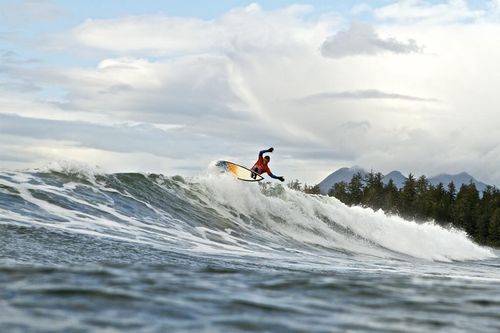
A crisp turn in chilly water during the Coldwater Classic Canada. Photo Courtesy O'Neill
When people think surfing, usually tropical islands, neon-blue water, and surf trunks come to mind. But with constant improvements in wetsuits and an ever-expanding surf population, the sport is flourishing in places like Canada, Norway, and Chile. Hell, there's even a contest circuit dedicated to cold water surfing: the . We caught up with a few surfers to see why they brave frigid waters. Yes, the goose bumps are a side effect, but they're also a goal.
Fewer people
“It can be less crowded since everyone gravitates towards the tropics,” says Shaun Cansdell, the overall winner of the .
Good waves are good waves
“When the waves are cranking, it makes you forget about the cold,” says South African pro Greg Emslie.
Location, location, location
“It's full-on wilderness, with rainforest behind you and seals and sea lions in the water and ospreys and eagles circling around overhead,” SBC Surf Magazine editor Malcolm Johnson says of surfing where he lives in Canada. “Being able to be part of that world is amazing.”
Good gear is easy to get
“The cold can be pretty merciless,” Johnson says. “It's hard to be happy when you're really cold, so having a good suit, gloves, and booties is key. The gear is so good now that you can be comfortable for a few hours in water that would kill you within a few minutes without it.”
You can follow it with a warm drink
“If you're surfing every day in cold water it's really demanding on your body—you have to make sure you're sleeping well, stretching afterward, and eating enough,” Johnson says. “A thermos of hot tea is another key thing for sure.”
I recommend scotch.
–Will Taylor